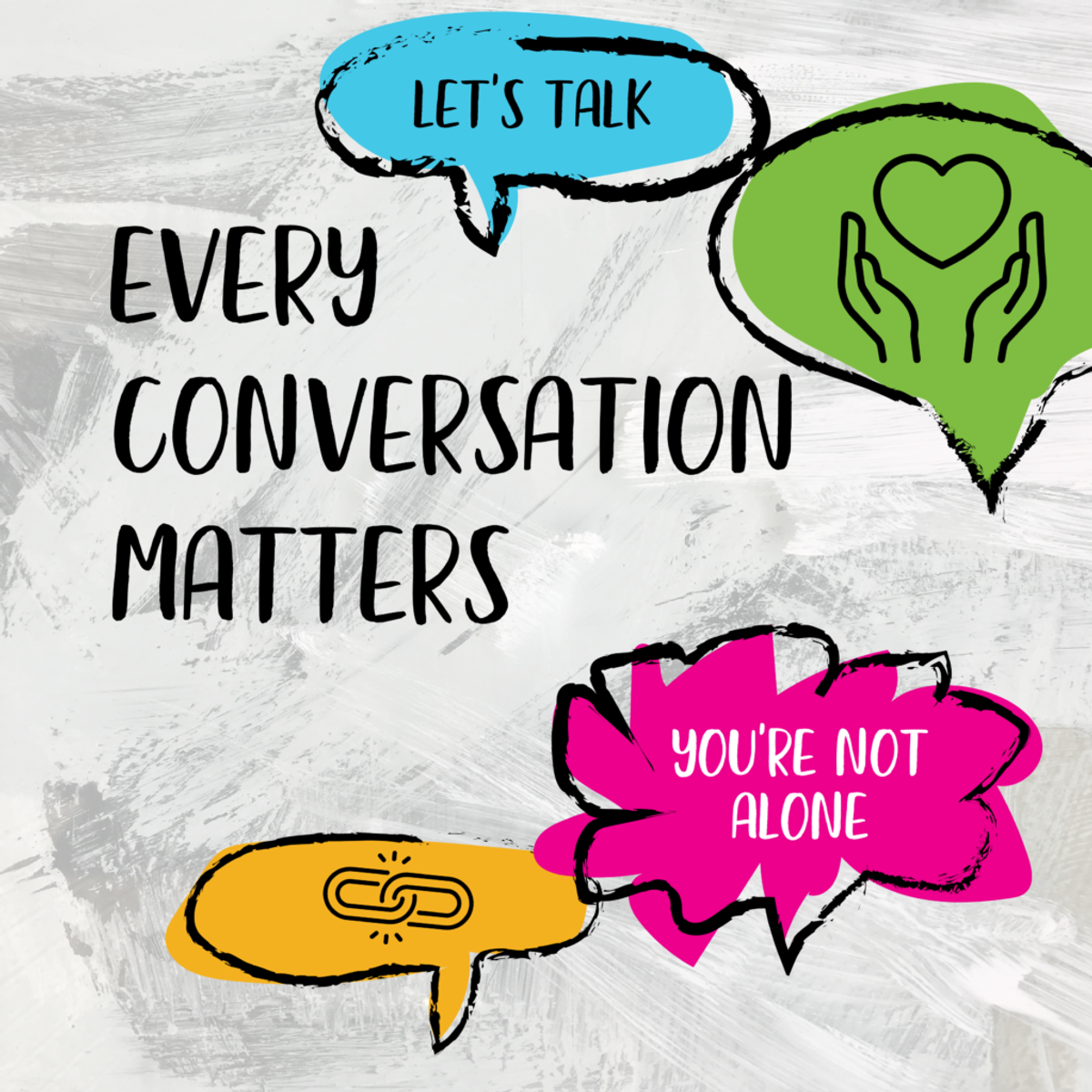Student Wellbeing

National Child Protection Week 2024
2024 theme: ‘Every conversation matters’
In 2024, the National Child Protection Week message that ‘Every child in every community needs a fair go’ will be complemented with the theme ‘Every conversation matters’.
Conversations are powerful tools to keep children and young people safe and well.
Conversations can help us understand issues, craft solutions, value community knowledge, and build the brains and social connections of children and young people.
Conversations between…children and their caregivers matter (from the very earliest days)…children and their peers matter…families with teachers, doctors, and other professionals matter…friends or neighbours matter
…decision-makers and the communities they serve matter.
And, of course, conversations in the public realm and media matter…
So this National Child Protection Week we invite you to speak up – and speak together – about what needs to change for every child in every community to have a fair go.
This theme provides a platform to:
- engage in important conversations,
- promote the value of conversations, and
- equip us to have conversations that keep kids safe.
9 Tips to support Communication with your Children
1. Active listening
Listening actively helps children to feel heard and understood. By using gestures such as encouraging smiles and affirming nods you can show that you are engaged with what your child is saying and really care. Getting down to the same eye level as your child as they speak to you can help them feel safer and more connected to you.
Show that you are listening intently to what they have to say by asking them questions like “what?” “why?” and “how?”. This also helps your child to improve their own communication skills by teaching them how to tell a story and what details to include.
2. Reflective listening
A great way to show your child that you are paying attention and care about what they have to say is by acting like a mirror. Repeat back what they say to you using different words. For example, if your child says, “I’m not playing with Marco anymore,” you could respond with, “You are not playing with your friend?”. This leaves room for your child to express their emotions without judgment. You might be surprised at how much they have to say!
3. Speaking clearly
Use language that is understandable for your child and appropriate to their age. Be clear, specific and do not use derogatory words. Using kind language helps set a positive example for your children. Remember, the conversation should make your little one feel respected and loved.
4. Avoiding bribes
Offering rewards such as candy for basic behaviours may feel like they give you short-term control, but they do not allow you to develop clear boundaries and can lead to distrust between you and your child. Try to set clear and realistic expectations about what you would like your child to do, praise good behaviour when you see it, and use calm consequences to encourage better behaviour when needed.
5. Explaining feelings
To help your child develop emotional intelligence, it is important for them to learn how to name their feelings. When your child is expressing their feelings verbally, listen to what they have to say with empathy and without judgment. Consider what life looks like through their eyes. If your little one is expressing their feelings in a nonverbal way – for example through a temper tantrum or laughing and having fun doing an activity they enjoy – help them put words to how they feel, such as happy, sad, relaxed, hurt, scared, hungry, proud, sleepy, angry, helpless, irritated, embarrassed or joyful.
6. Using ‘noticing’ statements
When you praise your child for specific actions, it helps them to feel good about themselves and lets them know what behaviours you like. Instead of saying “good job!” try being more specific with a ‘noticing statement’: “I noticed that you put all of your toys away after playtime. Nice work!”
7. Having fun together
As your children grow, parenting can seem like a more serious task. That’s why it is all the more important to have fun together and enjoy lighthearted conversation – it’s a great way to strengthen your relationship! Find ways to relate to your child by saying something positive about something they care about, paying attention to their interests and joking together. Remember, laugh with your child but never at your child.
8. Focusing on behaviour
If you are upset with your child about something, make sure that your criticism and comments are directed at their behaviour and not at them as a person. For example, instead of “I don’t like that you are messy” try “I don’t like it when you leave your clothes all over the floor.”
9. Leading by example
Consider what example you are setting. Parents are children’s introduction to the world. What your child sees you do is as important as what they hear you say.
Only make a promise to your child that you are sure you can keep. This helps to build and maintain trust between you and your children.
Remember, leading with kindness and love is always the way to go when bonding and communicating with your child!
Regards
Jenny Willmott
jwillmott@sjvmulgrave.catholic.edu.au
Deputy Principal/ Student Wellbeing Leader

